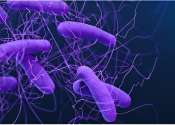In chemistry, especially biochemistry, a fatty acid is a carboxylic acid often with a long unbranched aliphatic tail (chain), which is either saturated or unsaturated. Carboxylic acids as short as butyric acid (4 carbon atoms) are considered to be fatty acids, whereas fatty acids derived from natural fats and oils may be assumed to have at least eight carbon atoms, caprylic acid (octanoic acid), for example. The most abundant natural fatty acids have an even number of carbon atoms because their biosynthesis involves acetyl-CoA, a coenzyme carrying a two-carbon-atom group (see fatty acid synthesis).
Fatty acids are produced by the hydrolysis of the ester linkages in a fat or biological oil (both of which are triglycerides), with the removal of glycerol. See oleochemicals.
Fatty acids are aliphatic monocarboxylic acids derived from, or contained in esterified form in, an animal or vegetable fat, oil, or wax. Natural fatty acids commonly have a chain of four to 28 carbons (usually unbranched and even numbered), which may be saturated or unsaturated. By extension, the term is sometimes used to embrace all acyclic aliphatic carboxylic acids. This would include acetic acid, which is not usually considered a fatty acid because it is so short that the triglyceride triacetin made from it is substantially miscible with water and is thus not a lipid.
The blend of fatty acids exuded by mammalian skin, together with lactic acid and pyruvic acid, are probably as distinctive as fingerprints, and enable dogs to differentiate between various people. A team from Yale University have in 2009 developed the electronic equivalent of a dog's sense of smell.









